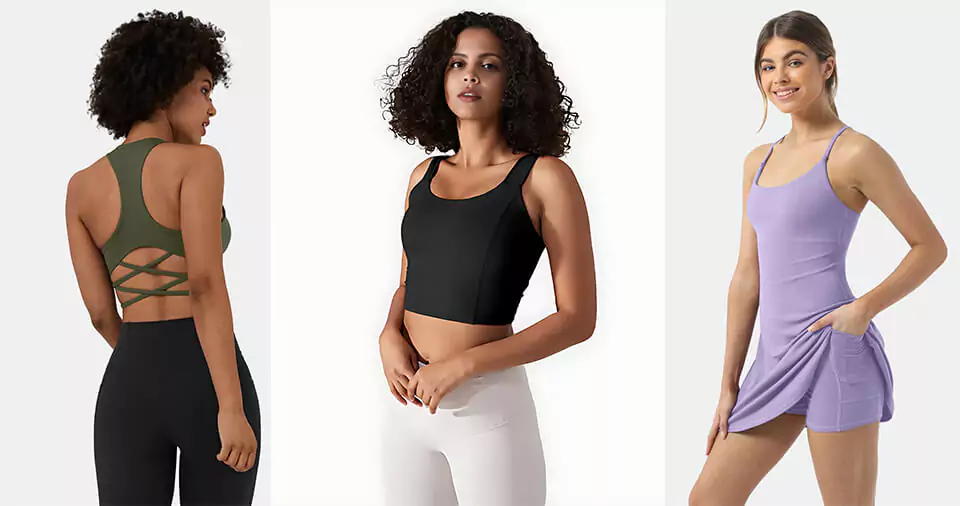Is Halara the New Face of Fast Fashion?
In recent years, the fashion industry has been swept by a wave of change as consumer awareness about sustainability has grown. A new entrant that has captured the attention of fashion enthusiasts and conscious consumers alike is Halara. The brand, known for its trendy athleisure wear, begs the question: is Halara fast fashion?
This blog post delves into the elements of Halara’s business model, practices, and product offerings, aiming to shed light on whether the brand aligns more with traditional fast fashion or with the more ethical, sustainable practices that modern shoppers are increasingly championing.
Unraveling Halara’s Production and Ethos
Halara has made a splash on the scene with marketing that emphasizes ease, comfort, and style. But beyond the glossy advertisements and the ‘add to cart’ allure, it’s important to look at how the brand operates. What materials are they using? Where and how are the clothes produced? These factors are essential in determining if a brand can be categorized as fast fashion.
Fast fashion is typically characterized by rapid production processes, quick trend turnover, and often, a disregard for environmental and labor concerns. It emphasizes quantity over quality, with the aim to constantly churn out high volumes of new, trendy clothing that responds to—and even dictates—the latest fashion fads.
Production Practices
When it comes to production, enables us to consider how transparent Halara is about where and how its clothes are made. Is the supply chain outlined on their website? Are they taking any known steps to ensure that workers’ rights are respected, and that safe, fair labor conditions are in place?
Material Use
Material choice directly impacts a garment’s ecological footprint. As fashion advances, more brands are now opting for recycled fabrics or materials from sustainable sources. Does Halara commit to using eco-friendly materials, or is the brand reliant on synthetic fibers like many fast-fashion companies?
Designs and Durability
The longevity of a product is a strong indicator of whether a company is following a fast-fashion model. Are Halara’s products designed to last, or are they more likely to end up in a landfill after a few wears? The resilience and timelessness of clothing designs are crucial in understanding a brand’s move toward sustainability.
Consumer Engagement and Marketing Strategies
Another factor to consider is how Halara engages with its audience. Fast fashion brands are known for their aggressive marketing strategies, geared towards encouraging impulsive shopping and constant wardrobe updates. Does Halara foster this throwaway culture, or do they market their products as long-term investment pieces?
The Pace of New Releases
The frequency with which Halara releases new products can be telling of its operational model. Is there a new collection every few weeks, or does the brand take a more measured approach to new releases? The speed of turnover is a hallmark of fast fashion.
Halara’s Stance on Sustainability
Nowadays, sustainability is more than just a buzzword; it’s a business model and philosophy that increasingly informed consumers demand. How does Halara measure up in this regard? From sourcing and production to packaging and shipping—every step matters.
Recycling and Upcycling Initiatives
Does Halara have a program in place for recycling or upcycling used garments? What happens to unsold stock? Fast fashion brands often have a surplus due to overproduction, leading to waste disposal issues, but sustainable brands tend to produce less and focus on the life cycle of each garment.
Looking to the Future
Finally, it is not just current practices but also future goals that define a brand’s alignment with fast-fashion ideals or sustainable ethics. What goals has Halara set for itself regarding sustainability in the next five, ten, or twenty years?
Understanding whether Halara falls into the category of fast fashion requires analysis of multiple factors that span the entire lifespan of its products—from conception to post-consumer use. Consumers deserve transparency, and by collectively examining and discussing brands like Halara, we push the fashion industry towards the kind of accountability needed to ensure a healthier planet and society.
As a consumer, your choices have power. By making informed decisions about where you shop and the ethos you support, you contribute to shaping a sustainable future for fashion. Stay curious, stay informed, and remember that every purchase is a vote for the kind of world you want to live in.
We hope this exploration helps you understand Halara’s position within the fashion industry and empowers you to make shopping choices that align with your values.




Post Comment